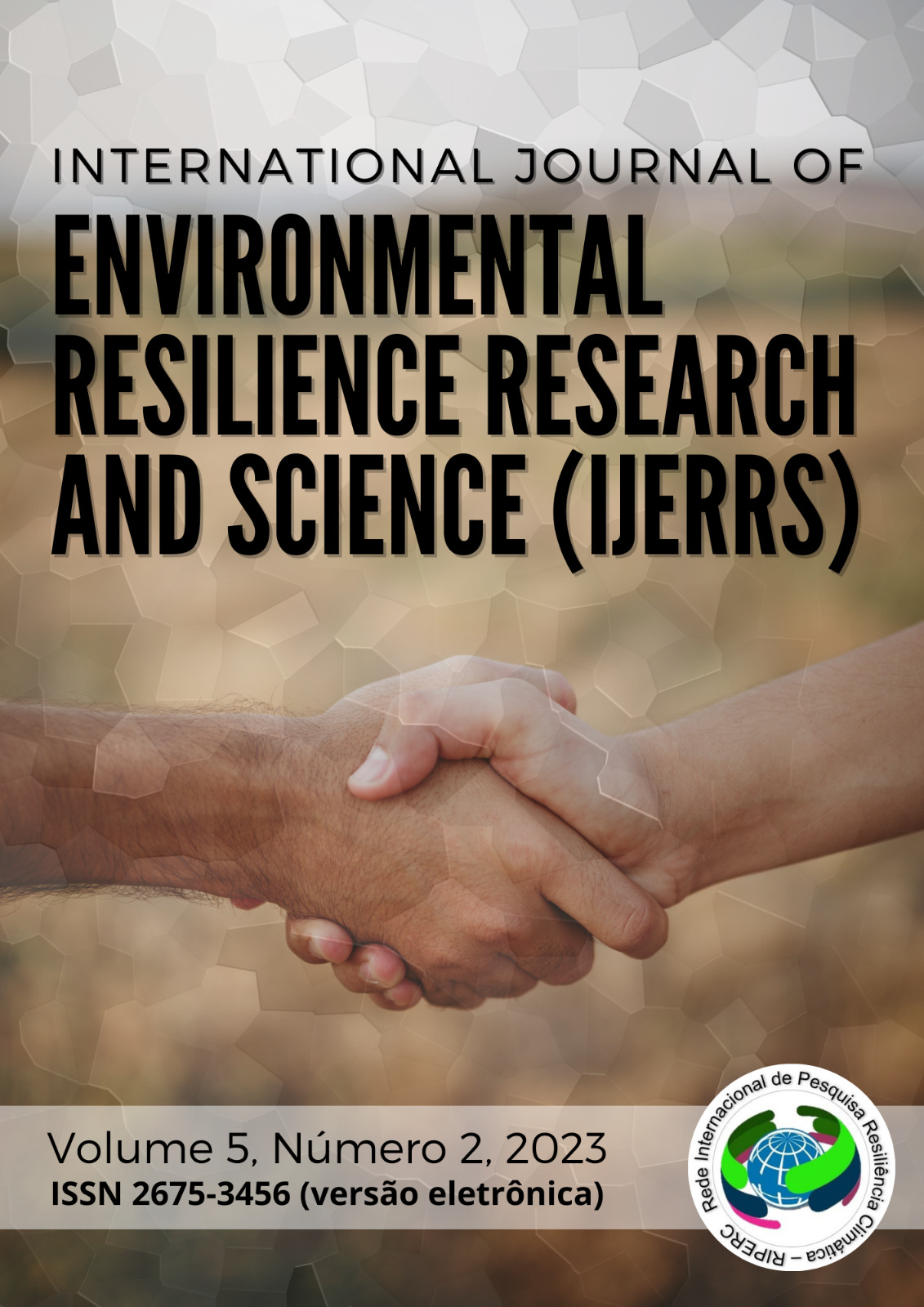Wajãpi Ecological Trail: an Alternative Experience Applied to Environmental Education in the South of Amapá, Amazon, Brazil
DOI:
https://doi.org/10.48075/ijerrs.v5i2.32360Abstract
This work was motivated by concerns about the current environmental crisis and the need to bring people closer to the environment in which they live, aiming to stimulate active participation and environmental responsibility. Thus, the project of an ecological trail was created with the objective of bringing people closer to their environment and stimulating their responsibility in the face of the environmental crisis. Therefore, the aim of this work is to evaluate the ecological trail as a tool for environmental education in the teaching/learning process to raise awareness in the Jari Valley society about the importance of the environment. The trail is located at the Federal Institute of Amapá (IFAP) campus in Laranjal do Jari, which, due to its green area, has the potential for the development of educational and recreational activities that integrate knowledge and comprehensively apply the principles of environmental education. Through interpretative visits and semi-structured questionnaires, the relationship between humans and the environment is evaluated, elucidating the importance of environmental education in the teaching/learning process. Therefore, the methodological procedures for conducting visits to the trail are organized by the responsible team of scholarship holders, interns, and volunteers, who receive students from various elementary and high school institutions, monitor the entire visit route on campus, and finally guide the trail to provide the experience of observing the existing vegetation, as well as the presence of insects and birds, highlighting the importance of the ecosystem in terms of its ecological and environmental functions. The use of the Wajãpi ecological trail leads to an understanding of the relationship between humans and the environment, being fundamental in the construction of environmental education for the present and the future, functioning as a highly effective active methodology for raising awareness and promoting socio-environmental engagement.
Keywords: Amazon. teaching. extension. trail.
Downloads
Published
How to Cite
Issue
Section
License
Copyright (c) 2023 International Journal of Environmental Resilience Research and Science

This work is licensed under a Creative Commons Attribution-NonCommercial-ShareAlike 4.0 International License.
Aviso de Direito Autoral Creative Commons
Política para Periódicos de Acesso Livre
Autores que publicam nesta revista concordam com os seguintes termos:
1. Autores mantém os direitos autorais e concedem à revista o direito de primeira publicação, com o trabalho simultaneamente licenciado sob a Licença Creative Commons Attribution que permite o compartilhamento do trabalho com reconhecimento da autoria e publicação inicial nesta revista.2. Autores têm autorização para assumir contratos adicionais separadamente, para distribuição não-exclusiva da versão do trabalho publicada nesta revista (ex.: publicar em repositório institucional ou como capítulo de livro), com reconhecimento de autoria e publicação inicial nesta revista.
3. Autores têm permissão e são estimulados a publicar e distribuir seu trabalho online (ex.: em repositórios institucionais ou na sua página pessoal) a qualquer ponto antes ou durante o processo editorial, já que isso pode gerar alterações produtivas, bem como aumentar o impacto e a citação do trabalho publicado (Veja O Efeito do Acesso Livre).
Licença Creative Commons
Esta obra está licenciada com uma Licença Creative Commons Atribuição-NãoComercial-CompartilhaIgual 4.0 Internacional, o que permite compartilhar, copiar, distribuir, exibir, reproduzir, a totalidade ou partes desde que não tenha objetivo comercial e sejam citados os autores e a fonte.









